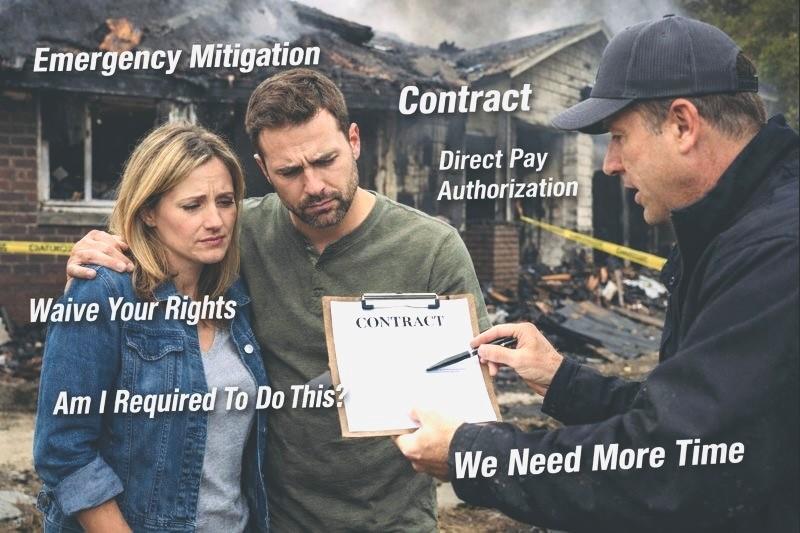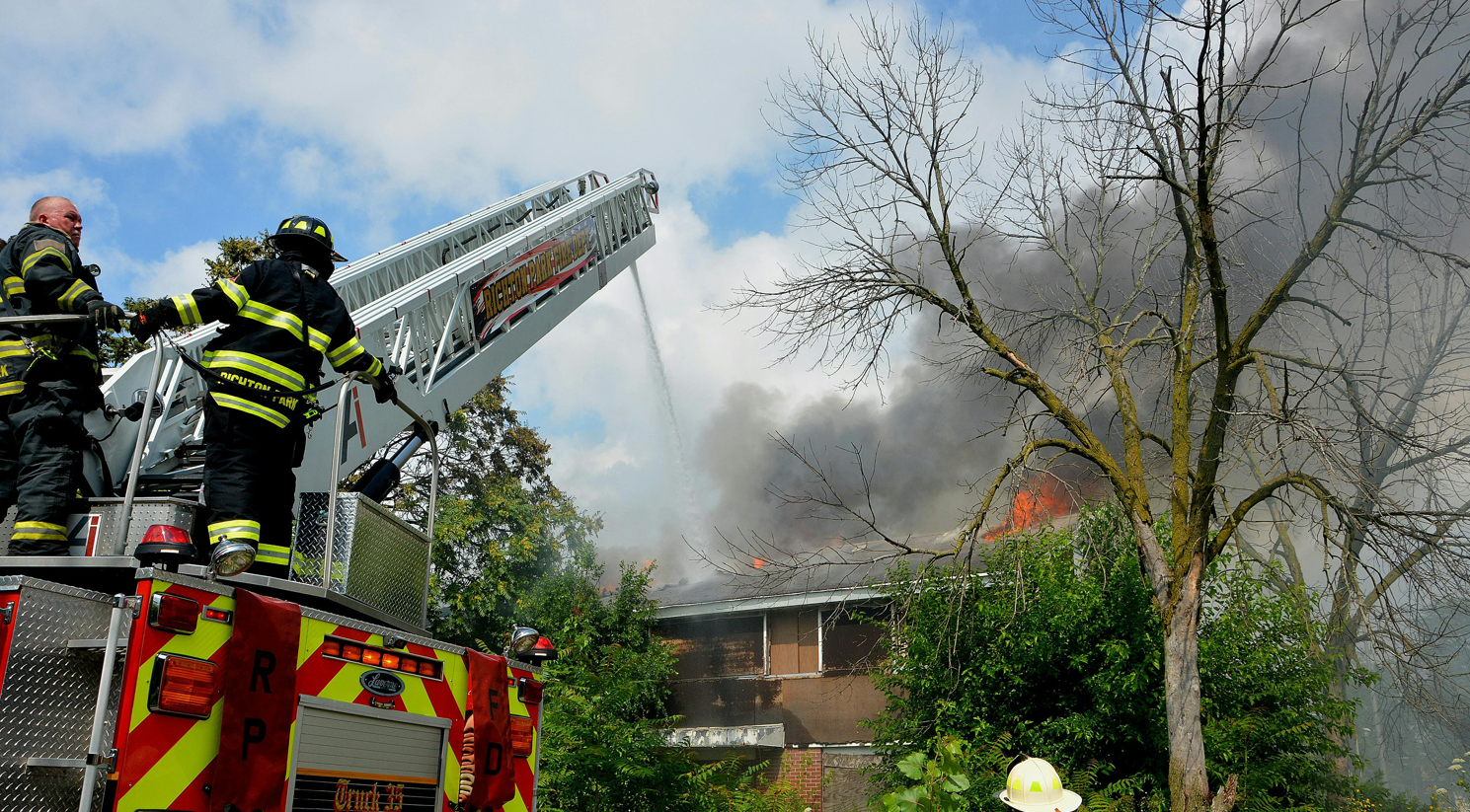True View Commercial Reviews - Credible Reviews When Looking For Service Providers
The Takeaways
- Treat star ratings as a starting point. The real value is in detailed, recent reviews you can cross-check across platforms, not one-off reviews.
- In Texas, public insurance adjusters are licensed and regulated by the Texas Department of Insurance. Always verify license status and inquire with the Department of Insurance.
- Pair online reviews with real-world verification: proof of insurance, permits, certifications, and references you actually call.
- After a major loss, you’ll often research a PA and a contractor at the same time. Stabilize quickly, then slow down to verify credentials.
- Specifics signal credibility. Favor reviews that mention scope, timeline, documentation, communication, and how problems were resolved.
After A Loss - Real Reviews Matter
When a house fire or severe water loss turns your life upside down, you don’t have the luxury of leisurely research. You need advocates and doers, often in parallel: a public insurance adjuster to help you navigate the claim and a contractor to secure, mitigate, and rebuild. Search results can feel like a wall of stars and slogans. The way through it is simple and disciplined: rely on "real platforms with real moderation"; read the long-form reviews, confirm licenses and insurance, and insist on documentation before you sign. It’s a professional process, and it works.
Start with the big review ecosystems because they give you breadth and a timeline.
- Google is useful for its volume and local relevance, but it only becomes insightful when you open the reviews and read them. Look for recent posts that describe what actually happened on a job. The most credible reviewers talk in specifics: the type of loss, the pace of communication, the way scope changed when hidden damage appeared, and whether the paperwork was timely and complete. Also, read to see if and how the company itself responds to reviews. It is not uncommon for the business owner to reply directly to customers to answer questions or share feedback.
- Yelp can add context because it tends to surface longer narratives and moderates more aggressively; just as with Google, sort by newest and pay attention to whether similar patterns show up over the past six to twelve months.
- The Better Business Bureau is not a star-rating engine, but it offers something different: a window into complaints and how the company responded. You are not looking for perfection; you are looking for a professional posture. A business that explains, documents, and resolves is showing you its operating system under stress.
- Angi (formerly Angie’s List) and HomeAdvisor can help in the contractor search because they classify project types and sometimes surface photo-rich job histories. Neighborhood groups, such as Nextdoor or local Facebook communities, can add first-hand referrals, but treat them as corroboration rather than your sole source.
Licensed Public Adjuster Earn True View Commercial Customer Reviews
For public insurance adjusters in Texas, step two is nonnegotiable: verify the license with the Texas Department of Insurance. A PA in Texas must hold an active license, maintain bonding, satisfy continuing education, and follow ethics and solicitation rules. Five minutes in the TDI license lookup can prevent months of regret. True View Commercial has always maintained clear and transparent data about the company license as well as the license of each adjuster that works for the firm. Copies of licenses are always available upon request and are readily accessible online through TDI. Check that the license is active and specifically designated as Public Insurance Adjuster, confirm the individual or firm you’re hiring matches the listing, and scan for disciplinary actions. If an order exists, read it. Context matters, but multiple or recent issues are a warning. A professional PA will give you their license number, bonding details, and a clear written fee agreement without hesitation. That level of transparency is part of the job.
Additionally, True View Commercial qualifies each Public Adjuster in detail before hiring. Each public adjuster, in addition to being licensed and bonded, MUST pass an exhaustive Local and Federal background check before being eligible for employment at the firm. This firm-wide standard ensures that we are hiring the highest quality public adjusters who, themselves, are focused on providing a client experience that will generate real customer reviews.
Why Put So Much Emphasis On Licensing and Ethics for PAs?
Simply put: because your claim lives or dies on documentation accuracy, ethical behavior surrounding fiduciary duties, and doing what is truly in the best interest for the insured. It is often times a selfless job. A credible PA operates inside the rules with precision: they gather proof, align scope with policy, track sublimits, mind the time frames, and communicate what the carrier needs at each step. When you read reviews, watch for signals of that discipline. Clients mention weekly updates, policy explanations before money is spent, clear expectations about documentation, and steady progress from notice of loss to final payment. Those are the hallmarks of a process-driven professional, not a headline chaser.
Contractors. After A Loss, Urgency Invites Pressure.
A common play is to rush a board-up or mitigation authorization and convert that into a full rebuild agreement before you have time to vet credentials. There’s nothing wrong with immediate stabilization when safety or weather demands it. What you want to avoid is signing a broad, open-ended commitment before you do your checks. Use the same review platforms, then layer in verifications that star ratings can’t show.
- Ask for certificates of general liability and workers compensation insurance, and verify them with the issuing agent.
- If your city offers an online permit portal, search your address once work begins and make sure permits are pulled and inspections pass.
- For mitigation or mold, ask about IICRC-trained technicians and any state-required licensing. Reputable firms will send documentation readily, because they know you will be asked for proof during the claim anyway.
- Ask who will be working in your house and ask for a list of all subcontractors.
- You might be surprised to learn how many times your project is getting subbed out!
Reading contractor reviews requires a builder’s eye for detail. Look for comments about scope definition, sequencing, and change-order management. Good reviews reference permits, inspections, draw schedules, and punch lists. They describe what happened when something went wrong and whether the contractor owned the fix with documentation and speed. When you see several unrelated reviewers in the past year praising schedule transparency, jobsite cleanliness, and inspection results, you’re seeing process maturity. By contrast, scattered complaints about unfinished jobs, poor communication, and liens deserve close scrutiny in the BBB record and, if possible, through a quick reference call.
One underrated move in both searches is cross-platform pattern matching. If Google reviews rave about responsiveness but BBB shows a cluster of recent unresolved complaints around the same topic, you have a data conflict to resolve. It doesn’t mean the company is unqualified; it means you need to ask for an explanation and evaluate the answer. The same goes for five-star pages that never mention documents, code, or inspections. A credible contractor talks about scope and compliance because that is the work. A credible PA talks about policy and proof because that is the work. Your job is to look for that language in the wild and then verify it in writing.
Because these searches often run in parallel, it helps to run a practical two-lane process. In Lane One, you shortlist public adjusters by reading recent Google, Yelp, and BBB entries, then immediately verify licensing through the Texas Department of Insurance and request a fee agreement and communication plan. Ask for two references from recent, similar losses and actually call them. Ten minutes per call is enough to learn how the PA handled documentation, timelines, negotiation, and follow-through. In Lane Two, you shortlist contractors using Google, Angi, and BBB, then request certificates of insurance, a sample scope for similar work, and a written explanation of how they handle permits, inspections, and change orders. If you’re evaluating mitigation firms, ask to see before-and-after photo sets and chain-of-custody documentation for contents or specialty cleaning. With both lanes, the theme is the same: documentation now prevents confusion later.
It is fair to wonder about insurer-recommended vendor lists. They can be a reasonable place to begin, but they are not an endpoint. A vendor’s ability to work inside a carrier program tells you something about baseline compliance, scheduling systems, and insurance; it does not relieve you of the need to confirm scope quality and fit for your project. Evaluate those firms the same way you would any other: read the recent reviews, check BBB patterns, verify current insurance, and insist on a written scope that ties to code and inspections. Professionals welcome those guardrails because it keeps the project aligned and reduces disputes later.
A One-Off
Before you decide, calibrate your expectations about reviews. A calm three-star review that describes a schedule slip, a documented change order, and a prompt fix might be a stronger credibility signal than a glowing five-star comment with no details. Likewise, a one-star rant without dates, names, full transparency, or that seems completely off-brand could just be a venting competitor trying to exact revenge or a fake review altogether. Train yourself to prefer specifics. Names, dates, line items, inspection results, and aftercare responses are all indicators of the real thing.
Two quick filters will save you time. For PAs in Texas: no active TDI license, no engagement. For contractors: no proof of insurance, no engagement. Everything else you learn will help you sort among qualified options. As you refine, watch for consistency across platforms and across time. Does the company operate today the way its best reviews describe? Do they answer your questions in writing? Do they show you exactly how they will document the job and communicate status? When the answers are yes, you’re looking at an operation you can trust.
Look At the Average
Finally, remember that the goal is not to become an investigator. The goal is to make an informed choice quickly, with the right evidence. Read a handful of recent, detailed reviews on multiple platforms. Confirm the PA’s active license and any disciplinary history with the Texas Department of Insurance. Verify a contractor’s insurance, permits, and training appropriate to the scope. Ask for references and actually call them. Put expectations in writing before you sign.
These are simple steps, but they stack. They transform a stressful scramble into a deliberate process and set the tone for how your team will work with you in the months ahead. If you have questions about your claim, PA reviews, or Contractor reviews, contact the True View Commercial office today, and we will happily assist you!



